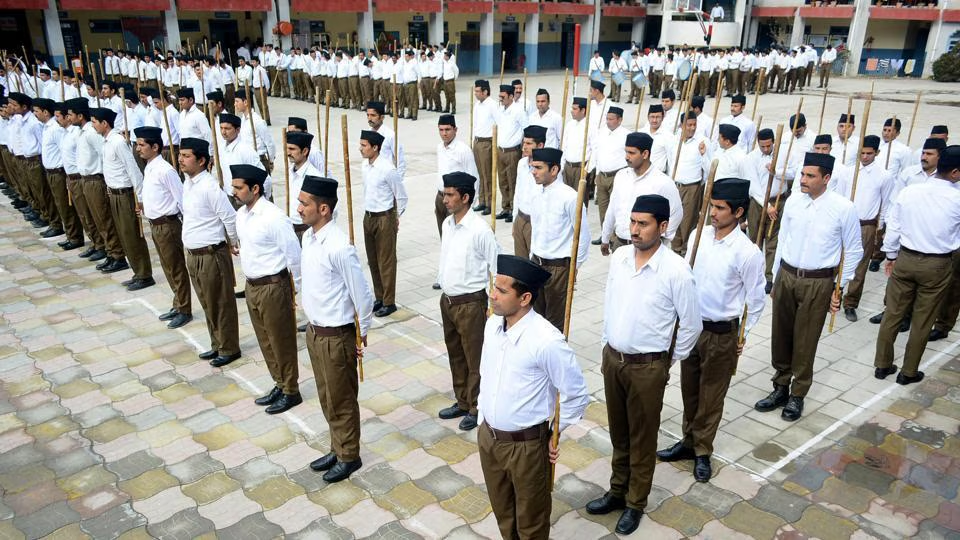RSS Plans to Rename ‘Hindu Sammelans’ in Himachal Districts
In a strategic move ahead of its centenary celebrations, Lahaul of Buddhist-Bahumat districts of the national state and the name of its’ Hindu homums’ in the spty and along the banks, is considering the Rashtrapraya Svayamsevak Union (RSS), next to the nationalists’ celebrations. The proposed new names are ‘Dharam Samlene’ or ‘Bodh Saraman’, which reflect the important Buddhist population of the region. This decision underlines the intention of the RSS to promote inclusion and respect for regional religious identity, maintaining its overlapping goal of promoting Hindu unity.
Reference and justification
The population of Himachal Pradesh is primarily Hindu, but the districts of Lahaul and Spiti and Kinnur stand out with their Buddhist communities. About 95% of the state’s Buddhist population lives in these two districts. Recognizing this demographic distinction, the Himachal Pradesh unit of the RSS is considering changing the names of meetings to ensure cultural sensitivity and comprehensive participation.
Sanjay Kumar Ji, the province of RSS of Himachal Pradesh, emphasized that the main objective of these ceremonies is social welfare. He said, “We are planning to name Scheduled Hindu Samelains either Dharam Samlain or Bodh Samlance, in Kinnur and Lahaul and Spty districts, in keeping with the large population of followers of Buddhism. In the rest of the kingdom, programs will be called Hindu Conference.” The final decision will be taken on changing the name after consultation with the RSS national-level office-holder.
Centenary celebrations and outreach
The centenary year of the RSS, starting on October 2, 2025, is an important milestone for the organization. To celebrate the opportunity, the RSS is planning a comprehensive outreach campaign, which aims to organize more than one lakh ‘Hindu Conference’ across the country. These meetings are designed to address internal division within Hindu society, such as caste-based inequalities, and promote unity and social harmony. The initiative includes direct community dialogues and a ‘Ghar-Ghar Sampark Abhiyan’ to expand domestic outreach.
Regional sensitivity and political implications
The decision to change the names of meetings in Buddhist-Bahul districts is seen as a step to respect local religious sentiments and to avoid possible separation. However, the RSS centenary celebrations and its outreach efforts are political undertakings, especially in the context of the upcoming elections. RSS’s ideological patron, Bharatiya Janata Party (BJP), is in power in Himachal Pradesh, and RSS activities are often seen as a complement to the BJP’s political strategies.
Opposition parties have expressed concern over the impact of the RSS on the state government and its possible impact on secularism. Any step is considered to be in favor of a religion over others, which can increase communal tension and affect the BJP’s standing among minority communities.
Public Response and Future Developments
The proposed naming has received mixed responses from the public. While some people appreciate the efforts of RSS to be inclusive, others see it as a political maneuver to strengthen support in Buddhist regions. The final decision on the name change and the structure of the centenary celebrations will depend on the internal deliberations of the RSS and consultation with the national office.
As the RSS reaches its centenary, its strategy and outreach initiative will continue to shape its role in India’s socio-political scenario. Between promoting Hindu unity and respecting regional religious identities, the balance will be important in determining the future trajectory of the organization and its relations with various communities across the country.
Historical and cultural importance
The decision to change the name of its meetings in Lahaul and Spiti and Kinnur of the RSS also highlights the importance of accepting the unique historical and cultural heritage of these areas. Both districts have a long-standing tradition of Buddhist monasteries, festivals and educational institutions that play a central role in community life. By selecting names like ‘Dharam Sammelons’ or ‘Bodh Sammelans’, the purpose of RSS is to show respect for this rich heritage, as well as maintain its broad mission of cultural and social harmony. Experts suggest that such sensitivity to local traditions can help the organization attach the organization more meaningfully and reduce the perceptions of cultural imposition.













